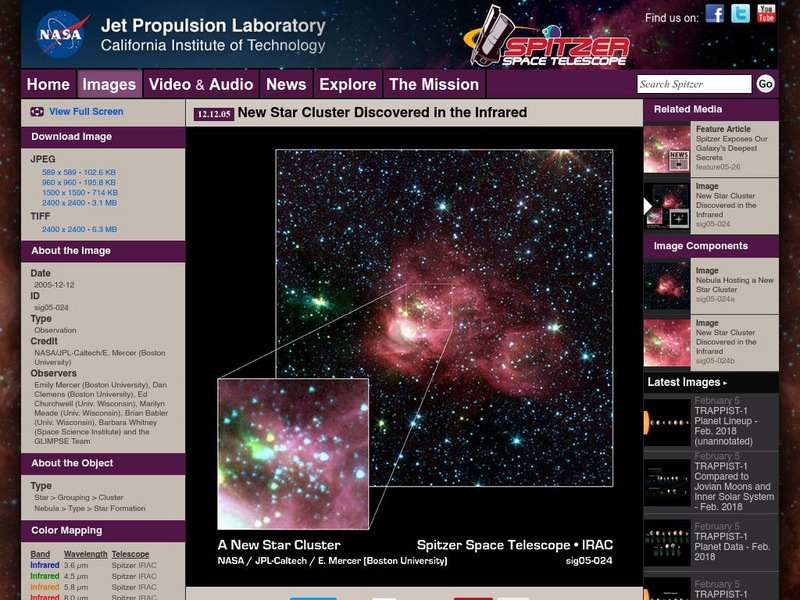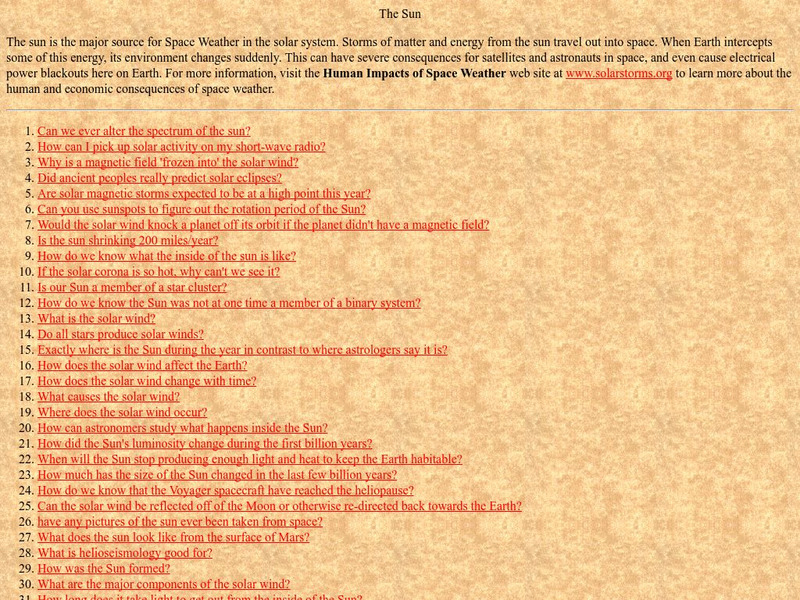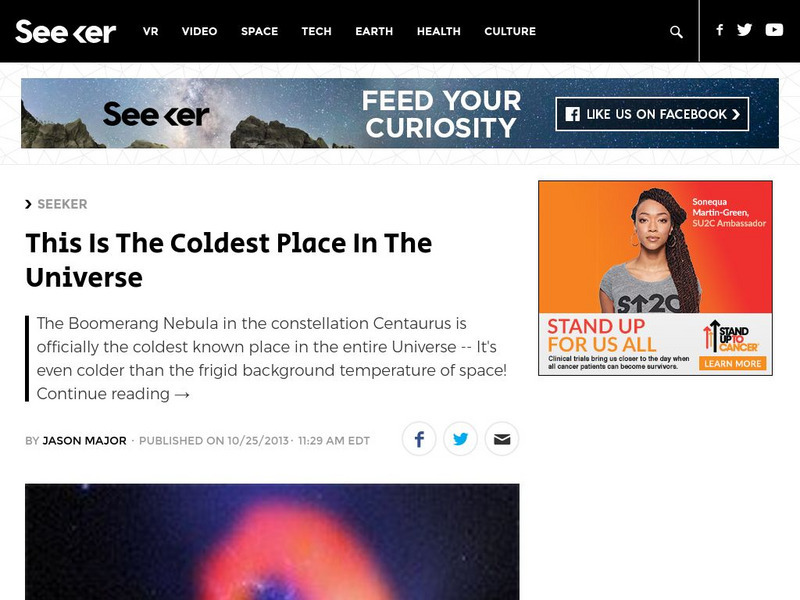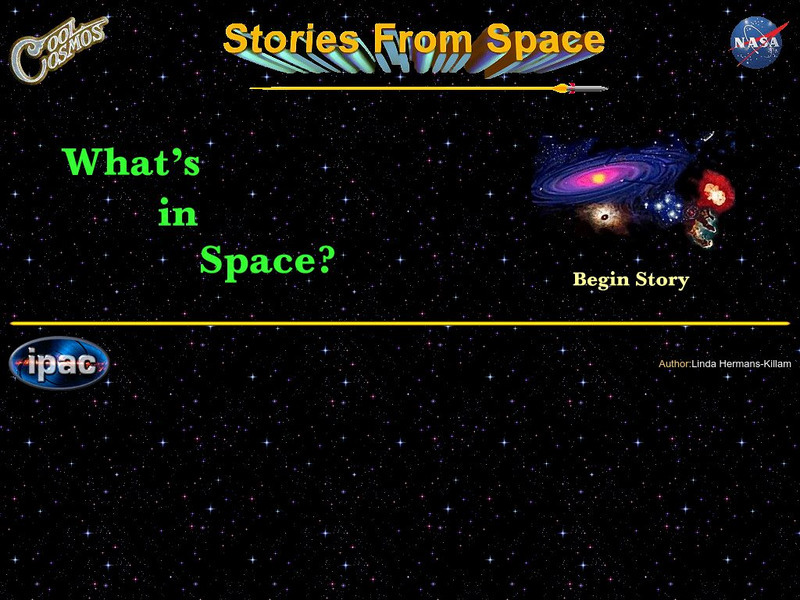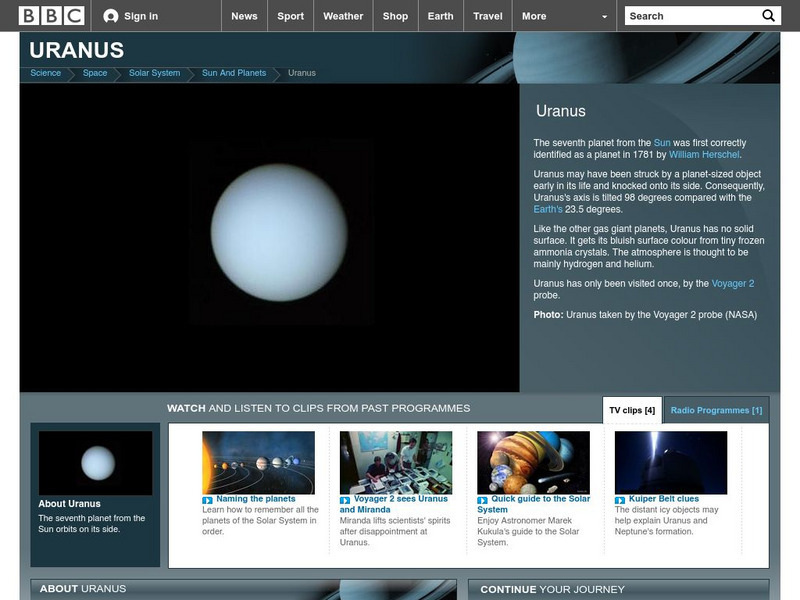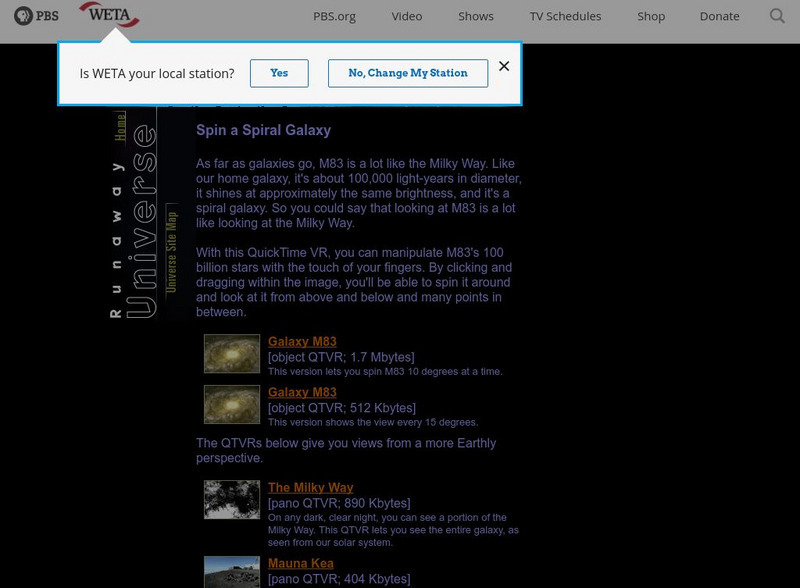Australian Broadcasting Corporation
Australian Broadcasting Corporation: News in Science: Sucked In! Our Galaxy Eats Neighbour
From ABC News in Science, Judy Skatssoon's article discusses evidence and research surrounding the remains of the Arcturus stream of stars, remains that suggest the possibility of the Milky Way as a carnivore galaxy.
Kidport
Kidport: Space Science
This complete resource will help students to improve their understand of space exploration. Includes images of the universe, galaxies, stars and planets.
Space Telescope Science Institute
Space Telescope Science Institute: Hubble Space Telescope
Find out how astronomers are conducting extensive observations to estimate how many planets in our Milky Way galaxy might be potential abodes for life.
NASA
Nasa Science: For Kids: Solar System Fun
Test your knowledge about the solar system with games and activities designed to help explore what you know about the sun, the planets and their moons, space rocks, the Milky Way, and related topics.
Society for Science and the Public
Science News for Students: Hold on to Your Stars, Ladies and Gentlemen
Describes scientific research that has revealed new information about the size and shape of the Milky Way.
California Institute of Technology
Spitzer Science Center: A New Star Cluster
The image entitled, "A New Star Cluster" shows the formation of a new group of stars located in the Milky Way galaxy. The text below the image goes into detail on describing the various specifics of the image.
NASA
Nasa: Image Science Center: Ask the Space Scientist
A NASA space scientist provides 98 questions and answers about the sun, the center of our solar system.
Seeker
Seeker: Week of 10 28 13: This Is the Coldest Place in the Universe
Article reports on the discovery by scientists that the Boomerang Nebula in the Milky Way is the coldest known place in space.
Globio
Glossopedia: Stars
Many of the objects you can see in the night sky are stars, large objects in space that produce light. Our galaxy, the Milky Way, contains more than 100 billion stars. Stars are so far away that their light does not reach us for years....
Scholastic
Scholastic: Study Jams! Science: Our Solar System: The Universe
A video and a short multiple-choice quiz on the Universe and what it is made up of.
Ducksters
Ducksters: Astronomy for Kids: Galaxies
Kid's learn about the science of Galaxies. Large groups of stars such as the Milky Way throughout the universe are an interesting part of astronomy.
California Institute of Technology
Cal Tech: Two Micron All Sky Survey
Learn about the Two Micron All Sky Survey project, in which telescopes and observatories scan the sky for infrared radiation in order to learn more about the Milky Way galaxy. The infrared spectrum is described and its importance to...
California Institute of Technology
Cal Tech: Stories From Space: What's in Space?
Through this story you will be introduced to outer space: stars, the Milky Way, planets, the Solar System, the Sun, clouds of dust and gas, galaxies.
Exploratorium
Exploratorium: Your Age on Other Worlds
Enter your birthday and find out how old you are on the other planets in the Milky Way Galaxy. Understand why our age is different on each planet.
Other
An Atlas of the Universe
What does the universe look like? This website offers visitors a collection of images that serve as an "atlas" of our universe. See multiple charts showing the Earth's distance from the Sun and other stars, find helpful terms in a...
BBC
Bbc: Uranus a Mission
Very good narrative about Voyager's mission past Uranus. Details the difficulties of the voyage, as well as containing very good pictures of its moons.
Curated OER
Milky Way
Using light as our measuring stick in space, science site provides all types of fun facts using light years and seconds as a reference.
NASA
Nasa: Jet Propulsion Laboratory: Planet Quest: Exoplanet Exploration
Constellation of articles, images, diagrams, posters, videos, and more on the subject of the search for planets, particularly Earth-like planets, outside our solar system.
Space Telescope Science Institute
Amazing Space: Galaxies
What is a galaxy? What is the name of our galaxy? Site offers answers to these questions as well as many more.
PBS
Pbs Nova Online: Spin a Spiral Galaxy
PBS site provides various views of spiral galaxies. (Quick Time required) With this technology, you can manipulate the image to spin it around and look at it from various angles.
NASA
Nasa Star Child: Star Child
StarChild from NASA defines and describes the Solar System in a simple and easy-to-understand manner. The website is broken down into two versions for the student, grade school and junior high.







